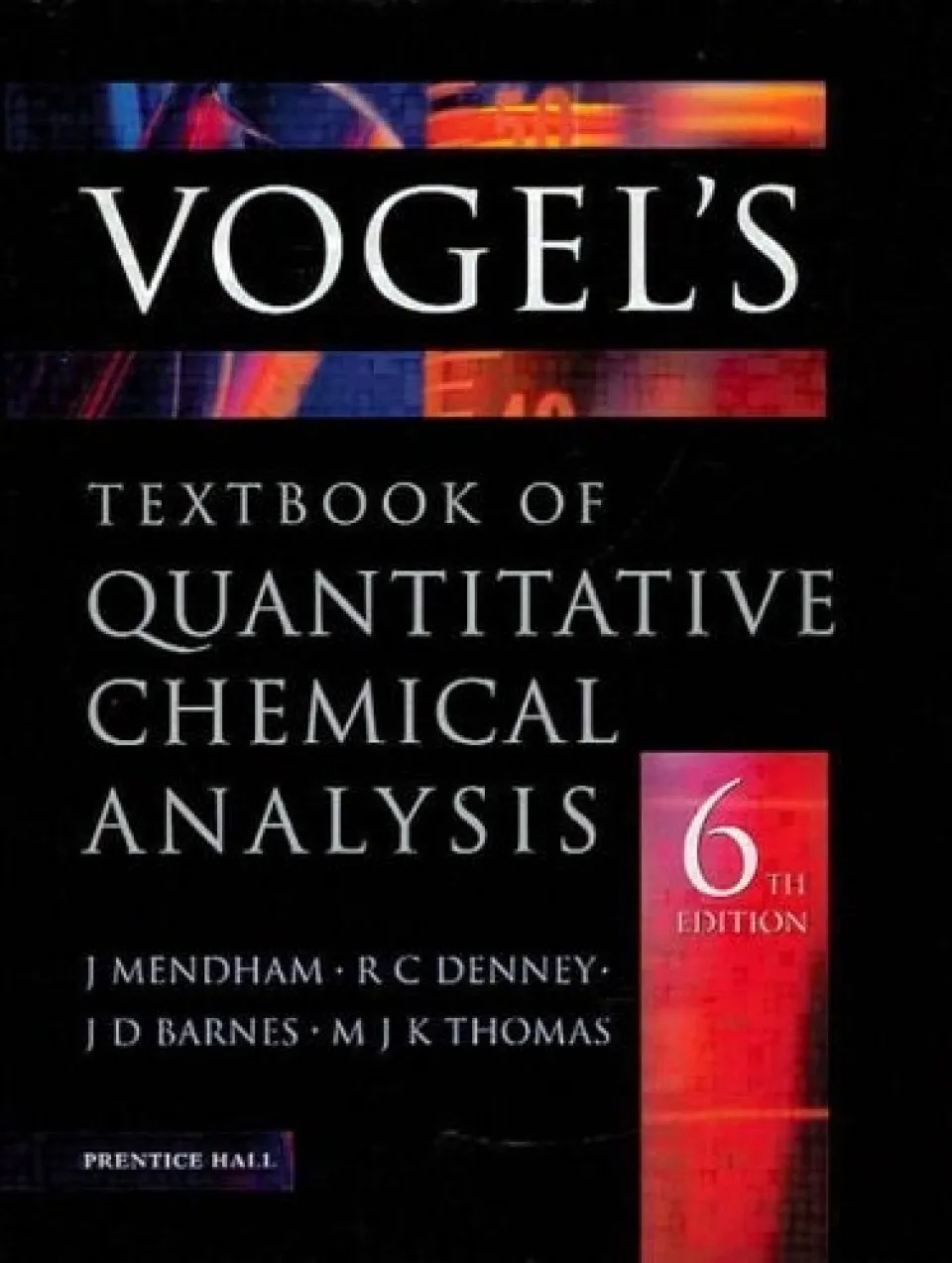Vogel’s Quantitative Chemical Analysis

Author: Arthur Israel Vogel, R.C. Denney
Published: 2000 (6th edition)
ISBN: 9780582226289
Buy Online: Amazon
Good Reads: 4.21/5 (19 ratings / 2 reviews)
“Vogel’s Quantitative Chemical Analysis (6th edition)” by Arthur Israel Vogel is a comprehensive and authoritative textbook on the principles and techniques of quantitative chemical analysis. The book provides a comprehensive overview of classical analytical methods, as well as a thorough introduction to modern instrumental techniques such as spectrophotometry, chromatography, and mass spectrometry.
One of the book’s strengths is its clear and concise writing style, which makes the subject matter accessible to a wide range of students, from advanced undergraduates to graduate students. The author provides a solid foundation in the underlying theory, while also incorporating numerous examples and applications to reinforce the concepts presented.
The book is well-organized and covers a broad range of topics, including gravimetric analysis, titrimetric analysis, and spectrophotometry. It also includes a thorough discussion of quality control and data analysis, which is essential for conducting accurate and reliable chemical analysis.
The 6th edition has been updated to reflect the latest advances in the field, including new techniques and applications.
In conclusion, “Vogel’s Quantitative Chemical Analysis – 6th edition” is an excellent resource for students, professionals, and researchers in the field of analytical chemistry. The book’s comprehensive coverage, clear writing style, and focus on real-world applications make it an invaluable resource for those seeking to gain a deeper understanding of quantitative chemical analysis.
About the author
Arthur Israel Vogel FRIC (1905 – 1966) was a British chemist known for his Chemistry textbooks. He became the head of the chemistry department at Woolwich Polytechnic at the age of 27.
Vogel’s first job was at Queen Mary University of London, continuing from his BSc, working with Professor J. R. Partington and achieving an MSc. After a short spell at University College London, he joined Imperial College London and the research school of Sir Jocelyn Field Thorpe. During his time there he received a D.Sc for his research on surface tension, electrochemistry, organic synthesis and sulphur chemistry. – Wikipedia
